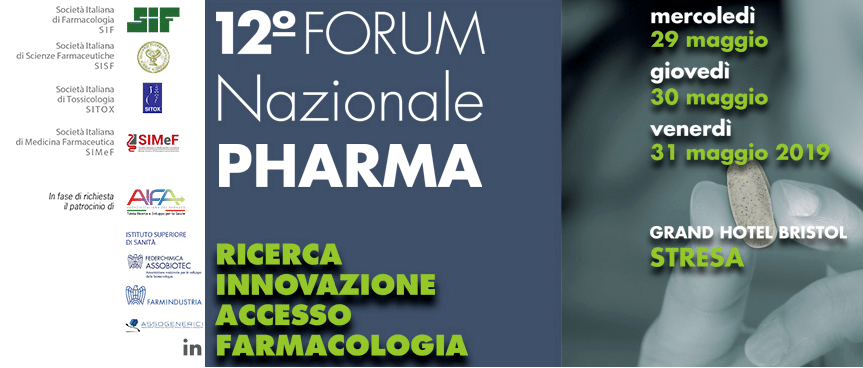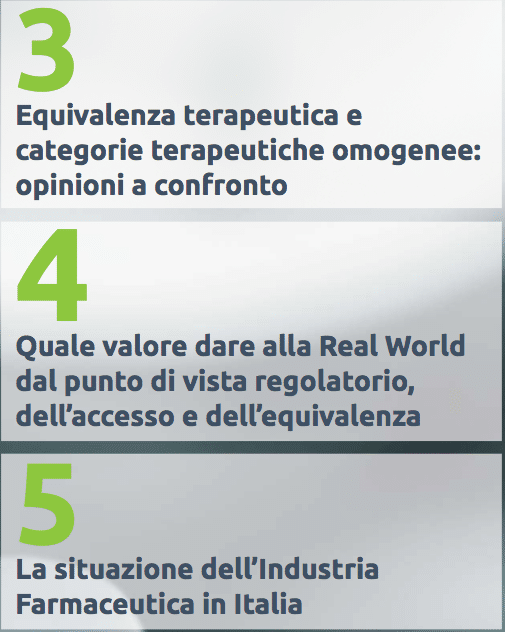È questo forse il tema più “caldo” che sarà discusso durante il 12° Forum Nazionale Pharma, in programma a Stresa dal 29 al 31 maggio. Ma non solo, tra gli altri argomenti “spinosi” anche i dati di real world e la sostenibilità dei prodotti innovativi. *A CURA DI SIF

In which cases can two or more drugs belonging to the same pharmaceutical class, with the same therapeutic indications and with overlapping efficacy and safety, but with a different active ingredient, be considered equivalent from a therapeutic point of view? This will be one of the topics of discussion 12th National Pharma Forum which will take place in Stresa from 29 to 31 May. Perhaps one of the "hottest" topics, as suggested by Patrizia Popoli, director of the National Center for Research and Preclinical and Clinical Evaluation of Medicines of the Higher Institute of Health (ISS), who will moderate the round table on therapeutic equivalence and homogeneous therapeutic categories . Because, as Popoli explains, who is also a member of the scientific committee of the Forum, "the Aifa determination on therapeutic equivalence, which had been withdrawn a few months after its publication, was reintroduced last year, generating some interpretative problems".
Stackable or not?
From the point of view of the regulatory authority, some drugs belonging to the same category have a substantial overlap 
The important thing is to talk about it
On the other hand, the Forum itself was created as a useful opportunity for discussion, able to favor informal interactions between the various representatives of the sector. "It is not certain that in the end common positions will be reached - continues Popoli - often this does not happen, but what is important is to discuss hot topics on which often there are different points of view".
Clinical research and Real world
Arguments that seem to be present at the Stresa Forum. Among others, the state of clinical research in Italy will also be discussed, with the idea of discussing above all what are the obstacles that still stand in the way of the full development of independent research. And real world data, which if exploited to the fullest could make a very important contribution to drug knowledge. Especially in a post registration phase. "These are very important data - adds Popoli who is also president of the Aifa Technical-Scientific Commission - because they provide information that we could never get from clinical studies".
Real life
For example, the trials do not provide information on elderly patients - a population often not included but increasingly numerous - nor long-term data. Furthermore, they are conducted in an "aseptic" manner, with very strict inclusion and exclusion criteria and very strong adherence to therapy. All conditions that do not occur in real life.
“Real world data represent a very important source of supplementary information to that provided by clinical studies” comments Popoli. “But we still have to discuss how to collect and analyze them. It must be established which quality systems to use to collect them, which sources to consider, which security systems to apply to protect sensitive data, etc. There's a lot of work to do. In the round table on this issue, we will try to understand what their value is, also from a regulatory point of view. That is, how much this data that we collect in real life can then be used in a regulatory environment, for registration purposes or to change decisions and so on".
Sustainable innovation
Another hot topic, to which an entire session of the Forum is dedicated, is the sustainability of innovation. Reconciling innovation and sustainability has never been more difficult than in these times, in which the demand and supply of new medicines – often truly revolutionary – are on the rise, accompanied however by ever more limited resources. “We find ourselves fighting against forces that are pushing in conflicting directions – concludes Popoli – without prejudice to the will to maintain a universal and solidarity-based NHS. One of the ways to pursue, which will be discussed, is to value each new drug in proportion to the value it offers in a therapeutic sense, for how much health it brings to the patient more than for how much it cost. Always taking into account the fact that the company must compensate for the investment made in research and development. This is only one of the considerations that can be made in this regard and which will be discussed. Finally, I think that the theme of the innovative fund will also be touched upon. We still don't know if it will be maintained or not in the coming years, but this is a question for politicians."
By Sif
